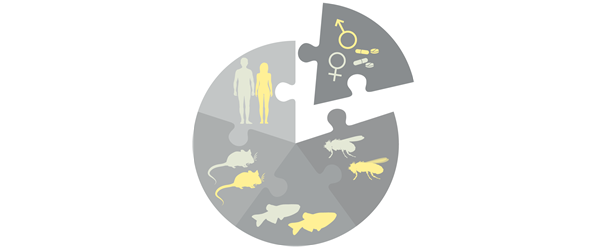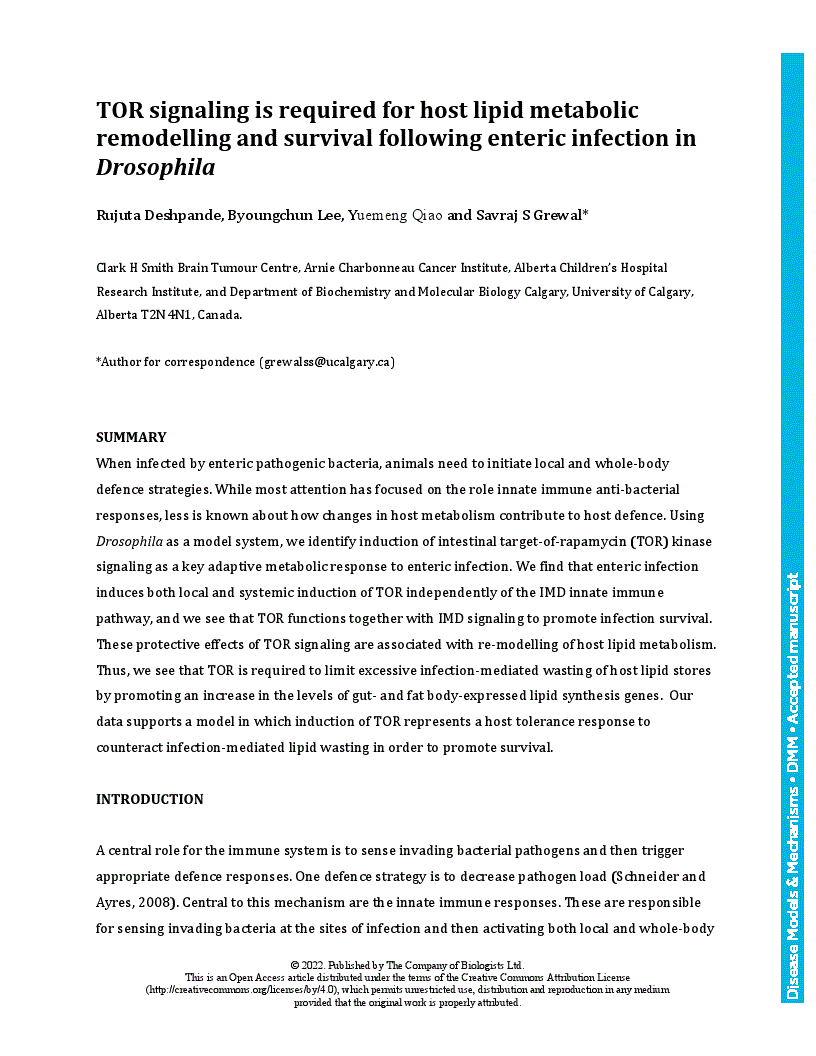When infected by enteric pathogenic bacteria, animals need to initiate local and whole-body defence strategies. While most attention has focused on the role innate immune anti-bacterial responses, less is known about how changes in host metabolism contribute to host defence. Using Drosophila as a model system, we identify induction of intestinal target-of-rapamycin (TOR) kinase signaling as a key adaptive metabolic response to enteric infection. We find that enteric infection induces both local and systemic induction of TOR independently of the IMD innate immune pathway, and we see that TOR functions together with IMD signaling to promote infection survival. These protective effects of TOR signaling are associated with re-modelling of host lipid metabolism. Thus, we see that TOR is required to limit excessive infection-mediated wasting of host lipid stores by promoting an increase in the levels of gut- and fat body-expressed lipid synthesis genes. Our data supports a model in which induction of TOR represents a host tolerance response to counteract infection-mediated lipid wasting in order to promote survival.
TOR signaling is required for host lipid metabolic remodelling and survival following enteric infection in Drosophila
- Award Group:
- Funder(s): Canadian Institutes of Health Research
- Award Id(s): PJT-173517
- Funder(s):
- Award Group:
- Funder(s): Natural Sciences and Engineering Research Council of Canada
- Funder(s):
Currently Viewing Accepted Manuscript - Newer Version Available
- Split-screen
- Views Icon Views
- Open the PDF for in another window
-
Article Versions Icon
Versions
- Version of Record 09 May 2022
- Accepted Manuscript 01 April 2022
- Share Icon Share
-
Tools Icon
Tools
- Search Site
Rujuta Deshpande, Byoungchun Lee, Yuemeng Qiao, Savraj S. Grewal; TOR signaling is required for host lipid metabolic remodelling and survival following enteric infection in Drosophila. Dis Model Mech 2022; dmm.049551. doi: https://doi.org/10.1242/dmm.049551
Download citation file:
Advertisement
Sex matters in preclinical research

DMM calls for improved inclusion, analysis and reporting of sex as a biological variable in preclinical animal modelling research. Read the full Editorial by Monica J. Justice.
Subject collection: Building advocacy into research

DMM’s new series - Building advocacy into research - features interviews, ‘The Patient’s Voice’, with patients and advocates for a range of disease types, with the aim of supporting the highest quality research for the benefit of all patients affected by disease.
Travelling Fellowships for early-career researchers

DMM and its sister journals offer Travelling Fellowships of up to £3,000 to graduate students and post-doctoral researchers wishing to make collaborative visits to other laboratories. Find out more about our Travelling Fellowships and read stories from previous grant recipients.
Read & Publish Open Access publishing: what authors say

We have had great feedback from authors who have benefitted from our Read & Publish agreement with their institution and have been able to publish Open Access with us without paying an APC. Read what they had to say.
The Forest of Biologists
Our Publisher Claire Moulton recently visited the two Woodland Trust UK sites where we are planting new native trees for published Research and Review papers and protecting ancient woodland on behalf of our peer reviewers.
Other journals from
The Company of Biologists



